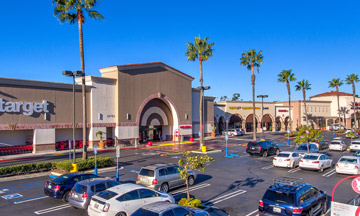As published on Connect Media on May 1, 2019
 Frustration is running high within the industry regarding the speed at which retail lease transactions are moving. Even the simplest lease deal is commonly taking six to eight months. It’s a challenge for everyone – sometimes the disconnect is on behalf of the landlord, and other times on behalf of tenants.
Frustration is running high within the industry regarding the speed at which retail lease transactions are moving. Even the simplest lease deal is commonly taking six to eight months. It’s a challenge for everyone – sometimes the disconnect is on behalf of the landlord, and other times on behalf of tenants.
There are a number of factors that can positively affect the pace of a deal, including open communication, a realistic starting point and proactive efforts with cities. Connect Media spoke with Coreland Companies’ Ben Terry, Vice President, Retail Brokerage, in our latest 3 CRE Q&A to find out some suggestions on how to work through the challenges.
 Q: Which major factors are impacting lease transactions this year?
Q: Which major factors are impacting lease transactions this year?
A: Shopping centers are full- fantastic for the economy and challenging for leasing. With vacancy rates hovering around 4.1% and 3.7% in Los Angeles and Orange counties, leasing quality spaces on the market becomes a tricky negotiation between bullish owners and tenants.
The influx of quick service and specialty food, medical and fitness uses have transformed many shopping centers over the past decade. However, there are still a selection of centers with major barriers stalling today’s deals.
Q: What types of barriers can slow down a deal?
A: Getting approvals from major tenants tops my list! It’s challenging to navigate around leases drafted 10-15 years ago in today’s market. ‘No fitness’ or ‘no medical’ are among the most common lease restrictions preventing you from simply adding a dentist office to a local shopping center without the approval of Ross, Petsmart and Albertsons, as examples.
The diversity of today’s food options can also get caught in the same trap. A sushi restaurant 15 years ago likely had an exclusive on Japanese food. However, now you have various Japanese specialties options like ramen, shabu-shabu and BBQ, all very capable of coexisting.
Q: Which factors can positively affect the pace of a deal?
A: Upfront communication. Manage expectations and discuss potential hurdles. A phone call or in-person meeting can go a long way, sometimes reminding everyone that both parties are moving towards a common goal. The quicker to the finish line, the quicker everyone starts making money.
Be realistic. Aside from the standard negotiation factors of a deal, like TI allowance, rent, free rent, all parties seem to be more vigorously fighting over secondary issues from the start. Discussions over CAM caps, exclusivity clauses and even HVAC are consuming a lot of time, yet they are secondary to the deal points. Experienced brokers know which clauses regional and national tenants need in order to get the deal approved. Understanding these factors upfront is an advantage.
Be proactive with the city. A simple approval that used to take weeks now takes months, so start communicating early. Get the planning department engaged from the start. Work to understand concerns, and how to best address them. Understand approved uses and ask what can be done to streamline a deal.
Retail will continue to evolve at a rapid pace. We need to be smart, progressive, and avoid letting some of these factors slow the pace of deals.
Copyright © 2019 Connect Group Media. All rights reserved – https://www.connect.media/picking-up-the-pace-of-retail-transactions/

